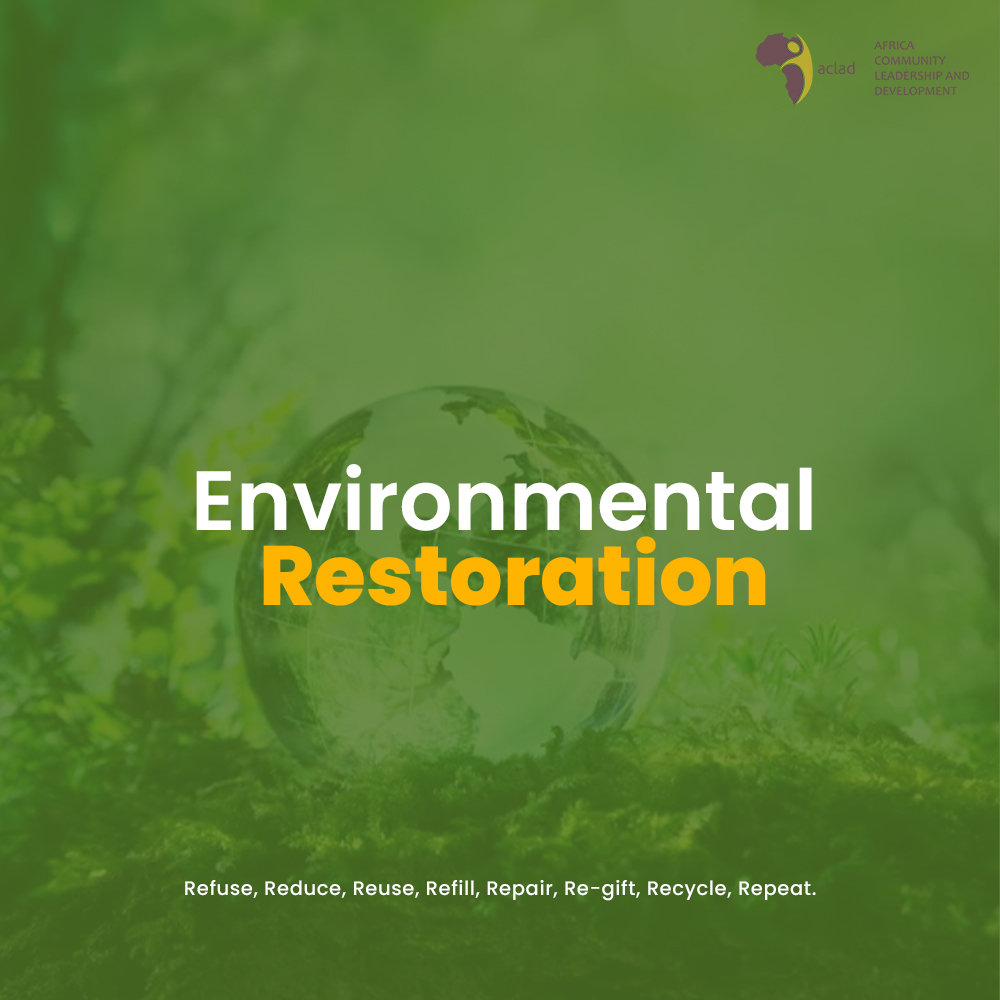Project: Environmental Restoration

As the world marked World Environment Day this year, our sponsored girls were not left behind as they happily marked the day by planting trees on their school grounds at Bishop Sulumeti Girls High School. This year (2021), the theme for the day as given by the United Nations (UN) was Reimagine. Recreate. Restore[1]. This was all too clear because for too long, our planet’s ecosystems have been exploited and destroyed by none other than ourselves. Yes, you and I are both guilty of being a part of destroying the ecosystems, whether in a small way in our backyards or failing to dispose trash properly or in a big way, cutting down trees and not planting others in their place.
According to the UN, the loss of ecosystems continues to deprive the world of carbon sinks such as forests and wetlands. Greenhouse gas emissions have increased steadily for the last three years, making climate change inevitable. With this theme, the UN aimed at encouraging people to reimagine, recreate and restore the environment and its ecosystems… to move from exploiting nature to healing it. The UN also kicked off the UN Decade on Ecosystem Restoration (2021-2030)[2] to revive billions of hectares, from forests to farmlands, from the top of mountains to the depth of the sea. This, our sponsored children are doing by planting one tree at a time, because it is only with healthy ecosystems that we can enhance people’s livelihoods while at the same time, counteract climate change and stop the collapse of biodiversity.
Because each of us is guilty of environmental degradation, we can still each be responsible for its restoration and healing. One of the best ways to contribute to environmental restoration is by remembering the three Rs we were taught in school- reduce, reuse and recycle. Reduce the amount of waste generated by deciding to use things carefully, reuse items or parts of items that are still usable and recycling items such as paper and plastic will significantly reduce air and water pollution.
Freestone (2017)[3] adds five more Rs to make eight Rs for the environment- Refuse, Refill, Repair, Re-gift and Repeat. Refusing involves assessing your needs and checking to see if there is a more durable and reusable alternative to what you want to purchase. Refill- involves looking for opportunities to refill containers instead of buying items with new packaging- for instance the large quantities of drinking water sold in the supermarkets. Having a drinking water filling station would be better than purchasing a new bottle every time. For us to heal, repair and restore Mother Earth, we need to emphasize and practice the eight Rs- Refuse, Reduce, Reuse, Refill, Repair, Re-gift, Recycle, Repeat.
Catherine Muteithia
ACLAD Media Consultant
[1] World Environment Day, 5 June
[2] UN Decade on Ecosystem Restoration (2021-2030)
[3] Living Sustainably: Three’s not enough: The eight R’s of recycling
